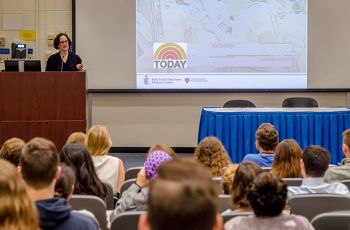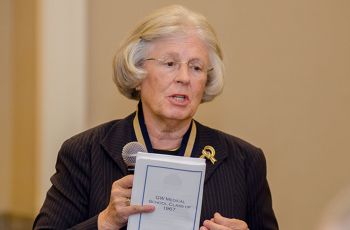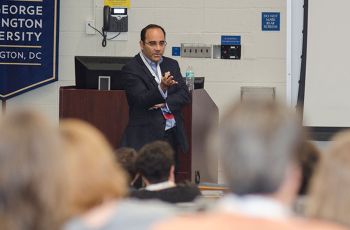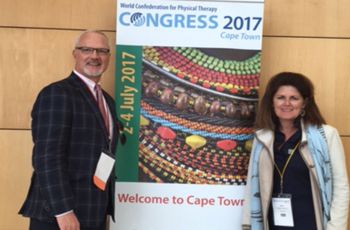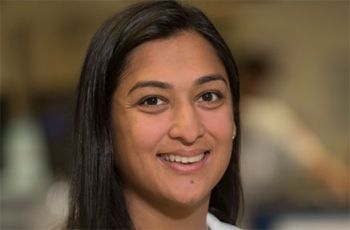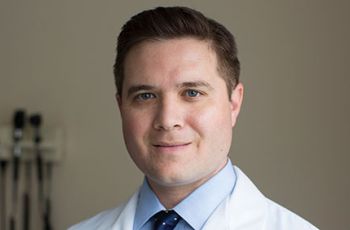News Archive
The GW School of Medicine and Health Sciences is pleased to announce the creation of the Office of Integrative Medicine and Health within the Department of Clinical Research and Leadership.
At the Ninth Annual Allan B. Weingold, MD, Obstetrics and Gynecology Lecture, Toni Huebscher Golen, MD, RESD ’95, discussed quality improvements and culture changes to reduce the Cesarean delivery rate.
SMHS invited the Class of 1967 back to campus for Reunion Weekend and honored them with a luncheon where they were inducted into the H Street Society.
Babak Sarani, MD ’97, RESD ’04, proselytized about the transformation of the GW Hospital Trauma and Critical Care Center to a crowd of alumni in his talk during the 6th Annual Frank N. Miller Lecture.
Katherine Chretien, MD, assistant dean for student affairs and associate professor of medicine, spoke to AAMC News for an article about being a mother working in medicine and the need for institutions to have structured policies around maternity leave.
The GW School of Medicine and Health Sciences is pleased to announce that Tracy Church, MBA, CPA, will serve as the executive director of development and alumni relations.
At the 2017 World Confederation for Physical Therapy in South Africa, a handful of platform presentation awards were announced, with faculty from GW's School of Medicine and Health Sciences scooping up two of them.
Monika Goyal, MD, assistant professor of pediatrics, was quoted by HealthDay for an article discussing her study that found that state laws impact the number of childhood gun-related injuries.
Nathaniel DeNicola, MD, assistant professor of obstetrics and gynecology, spoke to The Atlantic for an article about products promoted by the website, Goop, and some of the health concerns.
Jonathan Sherman, MD, associate professor of neurological surgery, Anthony Caputy, MD, chair of the Department of Neurological Surgery and Hugo V. Rizzoli Professor of Neurological Surgery, Michael Rosner, MD, professor of neurological surgery, and Julia Finkel, MD, professor of anesthesiology…

